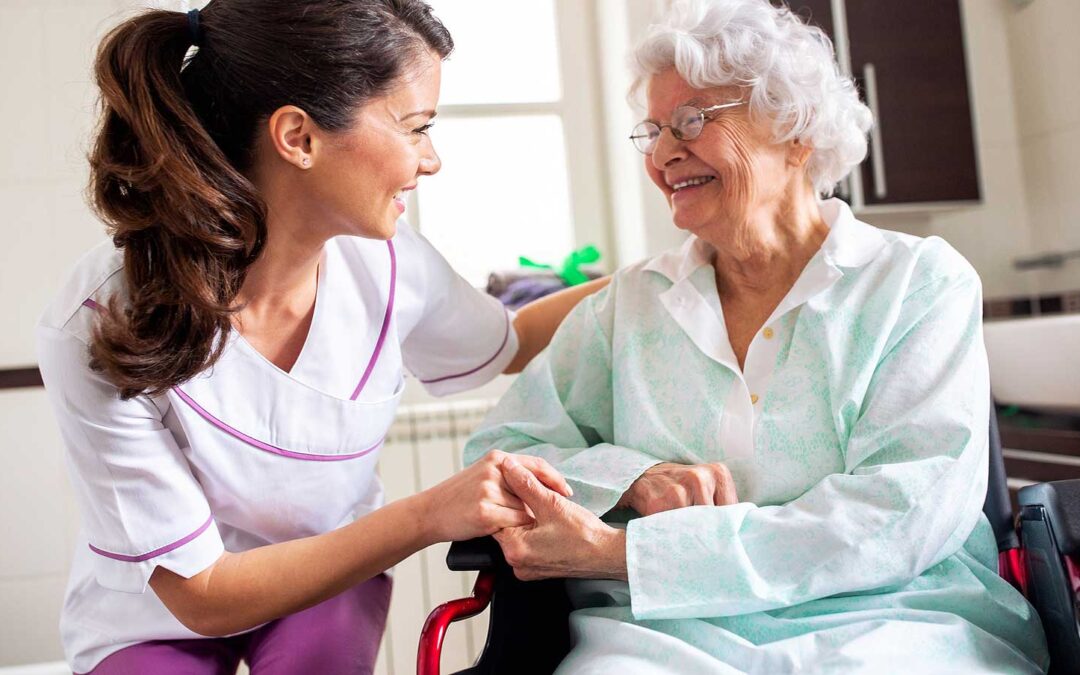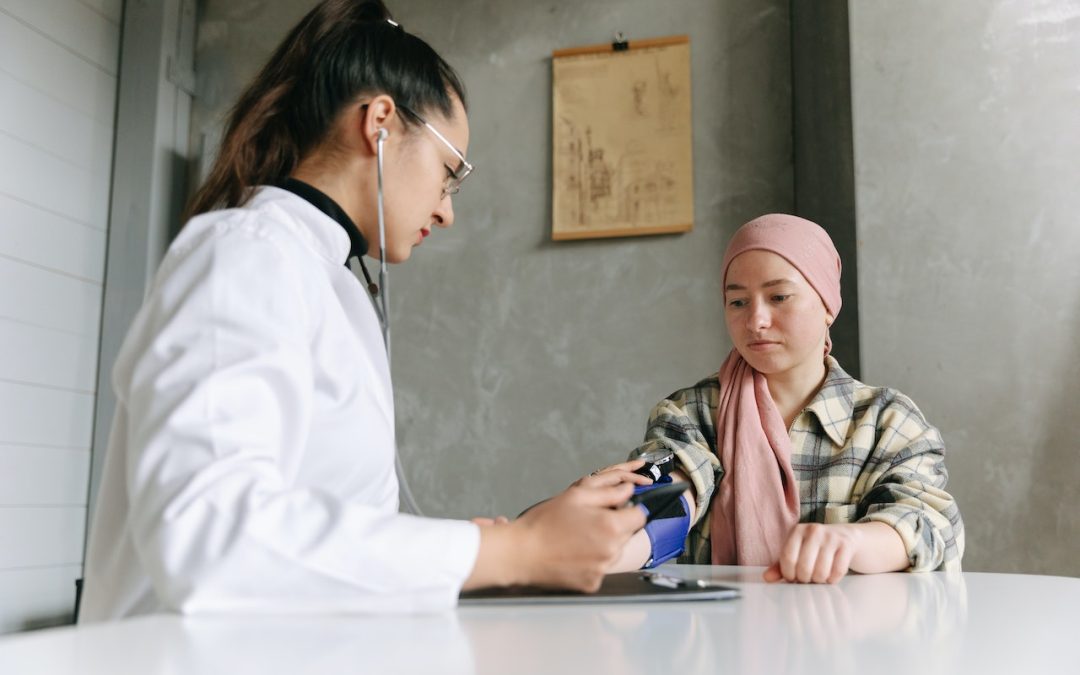A Resource for Videos & Information on Health & Healing Your Cancer.

Elder Care Strategies to Prevent Cancer
As we age, our bodies become more susceptible to various health concerns, including cancer. However, proactive elder care measures can significantly reduce the risk of developing cancer and promote overall well-being. In this comprehensive guide, we’ll explore various strategies for elder care aimed at preventing cancer and enhancing the quality of life for seniors.
- Nutrition and Diet: A balanced diet rich in fruits, vegetables, whole grains, and lean proteins plays a crucial role in cancer prevention. Encourage seniors to consume a variety of colorful fruits and vegetables high in antioxidants, vitamins, and minerals, which help protect cells from damage. Limiting processed foods, red meat, and sugary snacks can also lower cancer risk. Additionally, staying hydrated by drinking plenty of water is essential for overall health and well-being.
- Regular Exercise: Physical activity is not only beneficial for maintaining a healthy weight but also for reducing the risk of certain cancers, including colon, breast, and lung cancer. Encourage seniors to engage in regular exercise tailored to their abilities and preferences, such as walking, swimming, yoga, or tai chi. Even light to moderate exercise can improve circulation, strengthen the immune system, and promote overall vitality.
- Tobacco and Alcohol Avoidance: Smoking and excessive alcohol consumption are leading causes of cancer, particularly lung, liver, and throat cancers. Elderly individuals who smoke should be supported in their efforts to quit, as it’s never too late to experience the health benefits of a smoke-free life. Similarly, limiting alcohol intake or abstaining altogether can significantly reduce cancer risk and improve overall health outcomes.
- Sun Protection: Skin cancer is one of the most common types of cancer, especially among older adults who may have had significant sun exposure throughout their lives. Encourage seniors to protect their skin by wearing sunscreen with a high SPF, seeking shade during peak sun hours, and wearing protective clothing such as hats and sunglasses. Regular skin checks and prompt treatment of any suspicious moles or lesions are also essential for early detection and treatment.
- Regular Screening and Check-ups: Routine health screenings and check-ups are essential for detecting cancer in its early stages when treatment is most effective. Encourage seniors to schedule regular appointments with their healthcare providers for screenings such as mammograms, colonoscopies, prostate exams, and skin checks. Educate them about the importance of self-examinations for breast, skin, and testicular cancers, empowering them to take an active role in their health.
- Mental and Emotional Well-being: Maintaining mental and emotional well-being is vital for overall health and cancer prevention. Seniors should be encouraged to engage in activities that promote relaxation, stress reduction, and social connection, such as meditation, hobbies, and spending time with loved ones. Addressing feelings of loneliness or depression through counseling, support groups, or community involvement can also contribute to a healthier, more fulfilling life.
- Medication Management: Many elderly individuals take multiple medications to manage various health conditions, and some medications may increase the risk of cancer or interact with cancer treatments. Ensure that seniors receive regular medication reviews by the elder care providers to minimize potential risks and optimize treatment outcomes. Additionally, encourage seniors to adhere to prescribed medication regimens and report any side effects or concerns promptly.
- Environmental Awareness: Environmental factors such as air and water pollution, exposure to carcinogens in the workplace, and use of certain household products may contribute to cancer risk. Help seniors minimize exposure to harmful substances by ensuring proper ventilation in living spaces, using natural cleaning products, and advocating for policies that protect environmental health. Encourage seniors to stay informed about potential hazards in their surroundings and take proactive steps to reduce their impact.
Preventing cancer in elderly individuals requires a multifaceted approach that addresses nutrition, exercise, lifestyle choices, mental well-being, and proactive healthcare management. By implementing these elder care strategies, seniors can reduce their risk of cancer and enjoy a higher quality of life as they age gracefully. Encourage open communication, education, and support to empower seniors to take charge of their health and well-being for years to come.

Cancer and Its Effects on the Human Body
Sadly there are so many people who have fallen prey to this deadly disease. There are a vast number of people who have survived cancer of many types and in doing so live with the aftermath of the disease and then there is the sad fact that so many have died from these horrible disease as well. Research is advanced and ongoing and researchers and scientists continue their diligent efforts of trying to find a cure for this life-threatening disease.
What is Cancer
Cancer is actually the name that is given to a series of diseases that affect the body’s cells by causing them to multiply and spread into tissues that form tumors. It is a genetic disease that can be inherited or can develop through the years as body cells become damaged when exposed to certain environmental elements. Environmental substances that can aid in the production of cancer cells include tobacco, the sun’s rays, asbestos, and radiation to name a few. The cells in the human body grow and will divide and multiply into the formation of new cells that the body needs. As these body cells age they typically become damaged and then eventually die with new body cells coming in to take their place. Cancer can begin anywhere in the body and when it develops the normal cell reproducing process is interrupted and begins to break down. When this break down occurs the cells in the body start to take on an abnormal presence. The aged and damaged cells manage to survive instead of die and new extra cells begin forming in the body. It is these extra cells that continue to divide and eventually form tumors in the human body.
When these new cells continue to divide out of control they become severely invasive. These invasive cells are capable of completely ignoring the signals that the body typically sends directing cells to stop dividing or the signals sent telling the body to get rid of those cells that are not needed. In addition, these cancer cells are able to interact with surrounding normal cells directing them to provide oxygen to the growing tumors. Further cancer cells invade the immune system of the body by escaping the process initiated by the immune system to rid the body of damaged or abnormal cells. These cancer cells form into tumors and can actually thrive on the immune system to stay alive and continue to grow.
Effects of Cancer on the Body
Different types of cancers affect the body in vastly different ways. Most cancers can form swollen masses or tumors within the body and can produce excessive pain to the body or cause organs in the body to malfunction and even shutdown. The most negative effect cancer cells have on the human body is the ability to invade and completely break down and destroy healthy structures which ultimately results in excessive pain, excessive bleeding, varied blockages throughout the body and a reduction in the production of normal body cells. These tumors that are formed are further able to move throughout the body from one location to another destroying cells as they travel, a process called metastasis, and when invading the new locations cause continued damage and destruction to healthy normal cells while producing more of the bad cells. A prime example of this destructive and even deadly process is cancer of the breast travelling on to the lungs, then to the prostate and ultimately invading the bones. The effects that cancer has on the human body are causing extensive pain, discomfort, bleeding, and even death.
Conclusion
The research and study of cancer continues today with new discoveries happening every day. Recently scientists have discovered a whole new group of molecules that actually kill cancer cells while protecting the healthy cells at the same time. These discoveries and many more are ongoing and with the dedication and hard work of thousands of researchers and scientists throughout the world there is hope that one day soon there may actually be a true cure for cancer.
